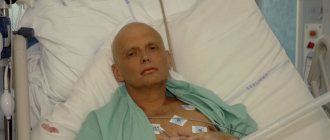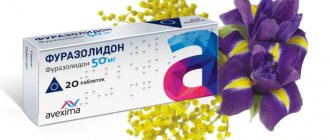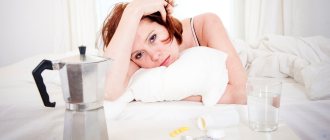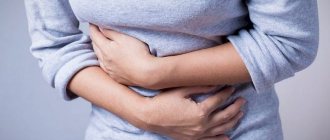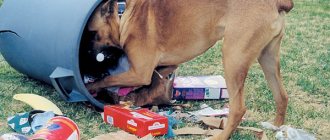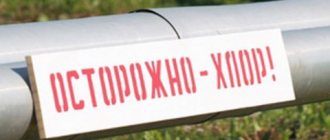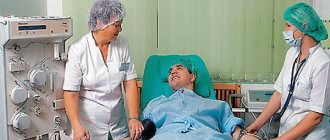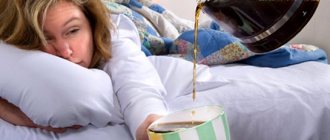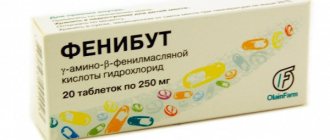Pharmacological therapy for acute food poisoning can be carried out at home, as prescribed by a doctor. Some of the drugs described below can be used independently, subject to the necessary precautions.
Therefore, every person should have an idea of what pills he can use against food poisoning, how to correctly determine the presence of indications and contraindications for them, and calculate the required dose.
Many drugs are used in the treatment of diseases
General rules for taking medications
It is recommended to take any medications only as prescribed by your doctor.
The choice of medications, which are necessary to take when identifying the first signs of food poisoning, depends on the degree and form of intoxication, as well as the existing clinical picture. In the vast majority of cases, treatment is limited to taking medications that help remove toxic substances from the body and normalize the functioning of the digestive tract. However, in severe forms of poisoning, the use of potent drugs, including antibiotics, may be prescribed.
It should be remembered that the attending physician should prescribe medications after examining the patient. Taking any medications without the knowledge of a specialist is strictly not recommended. In addition, you should pay attention that you can use medications only after procedures aimed at cleansing the body, for example, washing the stomach and intestines.
In general, the instructions suggest taking the following medications after poisoning, the pharmacological properties and side effects of which will be described in more detail in the video in this article:
| Group of drugs | Pharmacological properties | Why do you need it and recommendations for use? |
| Sorbents | They bind toxic substances and remove them from the body naturally. | It is recommended to drink in the first hours after the onset of symptoms in order to maximally cleanse the body of toxins and poisons. |
| Preparations for restoring water and salt balance | They normalize the water-salt balance in the body, prevent fluid loss and the onset of dehydration. | Recommended for severe vomiting and diarrhea to prevent exhaustion and dehydration. |
| Medicines against diarrhea and vomiting | Suppress vomiting and stop attacks of diarrhea, thereby preventing dehydration. | Vomiting and diarrhea contribute to the natural cleansing of the body; therefore, you can take appropriate medications only on the second or third day. |
| Medicines against intestinal infections | They have a detrimental effect on pathogenic microflora. | It is recommended to drink only if the poisoning was caused by the penetration of pathogenic microorganisms into the body. |
| Painkillers | They have an analgesic effect and eliminate discomfort. | Should be taken only when pain occurs. |
Usually a specialist prescribes a whole range of drugs
In addition to the drugs listed above, after poisoning, it is recommended to take medications and dietary supplements that help restore the microflora of the gastrointestinal tract and improve digestion.
Diet after removal of the acute process
If the disease is diagnosed, a number of drugs are prescribed for food poisoning, and a strict diet must be followed in the first 24 hours. Nothing other than purified water should enter the body. Only a day later, after all cleansing procedures and medications are taken, it is allowed to eat light meals.
Mandatory recommendations:
- soups are best served pureed;
- food intake should be fractional, with small portions (up to 5 times a day);
- It is recommended to prepare dishes using gentle methods;
- the pieces on the plate should be small;
- It is recommended to replace a tablespoon with a dessert or teaspoon.
Only after a week, with positive dynamics, do they gradually return to their usual, everyday food.
Authorized Products
These foods can be consumed during the recovery period:
- porridge without milk;
- low-fat meat and vegetable broths;
- steamed cutlets;
- vegetables cooked in a double boiler or boiled, baked;
- herbal teas and mineral water;
- dry biscuits and low-fat crackers
Prohibited Products
During a therapeutic diet, you should avoid these foods:
- dairy products;
- fatty meat broths;
- raw vegetables and fruits;
- fried meat and fish dishes;
- confectionery;
- oatmeal, millet, pearl barley;
- eggs;
- carbonated sweet drinks, juices.
Types of drugs
Regardless of the degree, stage and form of poisoning, you should not take several medications at the same time, since drug abuse may well lead to an overdose and worsening the patient’s condition. In addition, before taking any medication, you should always consult with your doctor.
Sorbents
Activated carbon shown in the photo is one of the most popular, cheap and effective means
After providing the patient with first aid, which consists of lavaging the stomach and cleansing the intestines, the patient should be given an anti-poisoning medicine classified as a sorbent. These products prevent the entry of toxins into the blood, gently bind and remove toxic substances from the body naturally.
The most popular drugs in this group include:
- Activated carbon . One of the most effective and affordable drugs, the price of which is more than affordable. The dose of the medicine should be calculated according to body weight - one tablet for every ten kilograms. White coal also has similar properties.
- Smecta . In addition to removing toxins from the body, the drug eliminates discomfort and pain, and also helps restore intestinal microflora.
- Polysorb . It has powerful anti-intoxication properties, removes toxic substances from the body, normalizes the state of microflora and improves the functioning of the digestive tract.
To maintain the obtained effect, sorbents should be taken not only directly on the day of poisoning, but also for at least three days after the first signs of intoxication appear.
Restoration of water and salt balance
To prevent dehydration of the body and restore water and salt balance, it is recommended to take rehydron.
Food poisoning is characterized by the appearance of symptoms such as vomiting and diarrhea. In this way, the body tries to cleanse itself of toxic substances naturally. But if bouts of vomiting and diarrhea continue for a long period of time, this can lead to exhaustion and dehydration.
To prevent this, you must take the following medications:
- Regidron;
- Glucosolan.
These medications can be taken directly on the day of poisoning; they will help restore water and salt balance and prevent deterioration of the patient’s condition.
Anti-diarrhea medications
If attacks of diarrhea bother the patient for a long period of time after the first symptoms of poisoning appear, it is recommended to take medications that relieve the urge to frequent the toilet.
Among the most effective means of this kind are:
- Gastrolit;
- Kaopectate;
- Neointestopan.
It should be noted that taking any medicine for poisoning and diarrhea should be started no earlier than five to six hours after the onset of symptoms of intoxication, otherwise the body’s self-cleansing will be artificially suspended and the patient’s condition will worsen.
Painkillers
No-Shpa is one of the most popular medicines for the relief of painful sensations
In some cases, the pathology is accompanied by the appearance of pain in the abdominal area. The best medicine for poisoning to relieve pain is No - Shpa. This drug helps relieve spasms of smooth muscles and eliminates discomfort.
To obtain a therapeutic effect, it is enough to take two tablets during the day. In addition to this remedy, you can take analogues sold at more reasonable prices, including: Drotaverine, Papaverine.
Anti-vomiting and anti-nausea medications
As a rule, attacks of vomiting stop bothering the patient after first aid is provided to the poisoned person and procedures are carried out to cleanse the intestines and lavage the stomach. If nausea accompanied by vomiting continues for a long period of time, this condition is dangerous and can lead to dehydration.
To prevent this, you should take antiemetic medications, the most popular of which are the following:
- Cerucal. This drug can be used both for food poisoning and against the background of toxicosis that occurs during pregnancy. The medication is available in the form of tablets and solutions intended for injections. It has a quick and effective effect, suppressing attacks of nausea and vomiting.
- Sturgeon. In the vast majority of cases, Osteron is used if there are contraindications to taking the drug Cerucal. The medicine has powerful antiemetics and stops the urge to vomit within a minimum period of time.
- Motilium. It has weak antiemetic properties, but thanks to the stimulation of the processes of removing toxins from the body, it quickly relieves nausea and normalizes digestion.
It should be noted that taking medications with antiemetic properties is recommended only after receiving medical advice. Self-administration of this type of medication can lead to undesirable consequences.
Prevention of complications
In severe forms, antibiotics may be prescribed.
The most common types of complications that can occur against the background of food poisoning are predominantly inflammatory processes, as well as the acquisition of acute forms by existing chronic diseases.
To prevent undesirable consequences, as well as to treat complications of food intoxication, mainly drugs classified as antibiotics are used, for example:
- Furazolidone is a drug used primarily to treat aerobic infections;
- Enterofuril is a broad-spectrum drug;
- Levomycetin – has a wide range of beneficial properties and a lot of side effects;
- Ersefuril is an antibiotic used primarily for the treatment of acute food intoxication.
Taking antibiotics without a preliminary examination by a doctor and an appropriate prescription is strictly not recommended due to the presence of a large number of side effects and contraindications (see Antibiotics for poisoning - nuances of choosing a drug). It should also be remembered that it is recommended to take such medications only in combination with medications that help restore the microflora of the intestinal tract.
Restoration of microflora
In case of food poisoning, even if it occurs in a relatively mild form, the microflora of the stomach and intestines is most susceptible to damage by toxic substances. To restore it and normalize digestive processes, it is recommended to take appropriate medications for a sufficiently long period of time.
Among the most popular and effective drugs used directly to restore and normalize the state of the microflora of the digestive tract are:
- Bifidumbacterin;
- Vitaflor;
- Lactobacterin;
- Probifor;
- Acylact;
- Narine;
- Bifiform;
- Fervital.
As a rule, these medications have a minimum number of side effects and contraindications, and therefore you can take them, including on your own, that is, without a medical prescription.
Restoration of damaged microflora
After poisoning, it is very important to take medications that will improve digestion and restore intestinal microflora. You should take probiotics and enzymes for about a week.
1. Mezim Forte, Festal or Creon are enzyme preparations that help digest proteins, fats and carbohydrates.
2. The drug “Lactofiltrum” improves the condition of the large intestine and stimulates the growth of beneficial microflora. In addition, it increases the body's resistance.
3. Linex contains beneficial lacto- and bifidobacteria that improve the condition of the gastrointestinal tract.
4. The medicine "Hilak Forte", in addition to populating the intestines with beneficial microflora, also helps to cope with poisons and toxins and is effective against some infectious diseases.
Drugs for the treatment of children
To treat children, you should use not only effective, but also safe means, for example, Smecta.
Most often, various types of food poisoning are diagnosed in children of the younger age category, which is due to multiple factors, including immaturity of the immune system. Medicines for poisoning for children should be chosen with extreme caution, and only after consultation with a specialist. It is strictly not recommended to give your child any medications without a doctor’s prescription, as this can cause serious complications.
For the treatment of children over one year of age, the following drugs are mainly used:
- Activated carbon;
- Regidron;
- Primadophilus;
- Motilium;
- Smecta;
- Polysorb.
The medications listed above should be given to the child in strict accordance with the recommended dosage, otherwise complications and other negative consequences are possible.
Everything must be strictly according to the instructions
Before choosing which medications to take after poisoning, you need to pay attention to the fact that competent treatment of food intoxication is not based solely on taking medications. For a quick recovery and to prevent possible complications, you should also follow a strict diet and drinking regimen, and also eliminate factors that contribute to the development of complications.
What is food poisoning and what can cause it?
Food poisoning develops as a result of acute intoxication of the body by toxins or pathogenic bacteria that enter it along with the food eaten. The course of the disease can be mild, moderate or severe. The severity and severity of the process depend on the type and amount of toxin eaten.
Please note that when consuming some types of poisonous mushrooms, 1 gram of poison is enough to cause death.
Poisoning can be caused by many reasons and provoking factors. Food that has been stored at the wrong temperature or has expired is dangerous to humans. You can be poisoned by sausage and fresh products infected with an intestinal infection. For example, eggs contaminated with salmonella may be fresh and normal in taste, color and smell. Food can be contaminated by the person preparing it. Dirty hands can introduce pathogenic bacteria into food.
Mushroom products pose a particular danger to humans. You can be poisoned by both poisonous and edible varieties of mushrooms.
Children are more susceptible to developing food poisoning than adults. This is explained by the peculiarity of the work and structure of their digestive system and their incompletely formed immunity.
The purpose of pharmacological treatment for poisoning
In case of poisoning, tablets are used as:
- means of symptomatic therapy (antiemetics, anti-inflammatory);
- etiotropic treatment (antidotes);
- detoxification agents (sorbents);
- means of restorative treatment (lactobacteria);
- means of combating infectious agents (antibiotics).
Do you have “just in case” items in your first aid kit?
The general goal of prescribing tablet medications for intoxications of various origins is to quickly remove the toxin from the body and restore the functions of the human body. Moreover, even during illness, medications help maintain an acceptable standard of living by relieving symptoms (pills for nausea and vomiting in case of poisoning).
Let's sum it up
Food poisoning and any other poisoning does not leave its mark on the body. The severity of the consequences can only be reduced by timely provision of assistance to the victim. It is necessary to know exactly what can and cannot be done during intoxication, in which cases the patient needs the help of a doctor. After eliminating the main symptoms of poisoning, the digestive system needs to be helped to recover, so you need to take probiotics, enzymes and follow a therapeutic diet for 10-14 days.
Share with your friends
Do something useful, it won't take much time
Classification of drugs used for food poisoning
For most poisonings, including food poisoning, the doctor prescribes tablets belonging to the following pharmacological groups:
- enterosorbents;
- antidotes;
- antiemetics;
- fixing;
- anti-inflammatory;
- antispasmodics;
- lactobacilli;
- antibacterial.
Other means of combating intoxication used for severe poisoning (fast-acting laxatives, infusion solutions) are not available in tablet form and are used exclusively in hospitals. A general overview of remedies for the treatment of toxic lesions of the body is presented in the video in this article.
What reasons can cause the disease?
Before you begin to fight an anxiety condition, you need to determine the cause of the disease. It does not always turn out to be harmless - if necessary, in severe cases, you have to urgently seek the help of a doctor. There are many factors that can provoke poisoning accompanied by diarrhea:
- consumption of low-quality spoiled products;
- passion for alcoholic beverages;
- excessive consumption of fresh fruits and vegetables;
- improper or insufficient heat treatment of food (fish, meat).
You can even be poisoned by medications if you take them incorrectly or in large quantities. In case of food poisoning and diarrhea, you need to act immediately - this will help prevent intoxication of the body and serious health complications.
Drugs of choice
What pills to take in case of poisoning should be decided by a specialist. In practice, a list of drugs of choice has long been selected that have an optimal price/effectiveness ratio. In each of the above groups there are such means. Each of them should be considered in more detail:
Activated carbon (enterosorbents group)
Activated carbon is a cheap and effective enterosorbent
A porous substance obtained by heat treatment of carbon raw materials. A universal antidote that can deposit a large amount of toxins contained in the stomach. It is used for the vast majority of oral poisonings. Can be taken orally or used as an additive to the washing liquid when cleansing the stomach.
The answer to the question of how many tablets of activated carbon to drink in case of poisoning depends on the condition of the victim and his body weight. The average dosage is 1 tablet per 10 kilograms of the patient’s own weight. If necessary, this dose can be significantly increased.
The instructions for using the product prohibit its use in case of exacerbation of gastrointestinal ulcers, gastrointestinal bleeding, or simultaneous use of oral antidotes (they become ineffective).
ACC, vitamin B₆ and other antidotes
Pyridoxine is an antidote to isoniazid.
Antidotes, also known as antidotes, are specific medications that can neutralize the effects of toxins. For each specific disease, its own antidote is used, so there is no need to consider any drug separately within the framework of this text. The list of tablet antidotes and the corresponding types of poisoning is given in the table below:
Table of tableted antidotes and their corresponding toxic substances:
| Poisonous substance | Antidote |
| Anti-tuberculosis drugs, rocket fuel components | Vitamin B6 |
| Dichloroethane, salicylates | Acetylcysteine |
| Potassium permanganate | Ascorbic acid |
| Methanol, ethylene glycol | Ethyl alcohol (not a tablet product, but taken orally) |
| Phosphorus | Copper sulfate |
As can be seen from the table data, antidotes are practically not used for food poisoning.
Metoclopramide (group of antiemetics)
Metoclopramide is a highly effective antiemetic drug
Metoclopramide (cerucal) - anti-vomiting tablets for poisoning. This dosage form is used only in cases of episodic vomiting of moderate intensity.
For frequent, uncontrollable vomiting, parenteral medications should be used, since the tablets will be evacuated from the stomach long before absorption. Absorbed into the blood, metoclopramide affects the vomiting center of the brain, reducing its excitability.
Interesting to know: vomiting is a protective reaction of the body aimed at removing toxins from the stomach. Therefore, it should only be stopped when it is debilitating or there is a risk of aspiration of vomit.
The drug is prescribed 10 mg 3 times a day. For children, the dose is halved. The medicine is contraindicated in case of gastric bleeding, gastric perforation or intestinal obstruction. During treatment, constipation, dry mouth, and headache are possible.
Loperamide (fixative group)
One of the best fixatives
Loperamide is an anti-poisoning tablet that has a fixative effect. They reduce the release of fluid into the intestinal lumen, thereby making stool thicker.
The drug also weakens peristalsis, which increases the time between bowel movements. Loperamide is prescribed for prolonged diarrhea accompanied by dehydration. There is no need to stop 2-3 loose stools.
The medicine is prescribed 4 mg for the first dose, then 1 tablet after each act of defecation. For children, the dosages are as follows:
- 4-8 years - 1 mg 3 times/day;
- 9-12 years - 2 mg 4 times a day.
Contraindicated in acute dysentery, pregnancy and lactation, pseudomembranous and ulcerative colitis. During treatment, increased fatigue, headaches, drowsiness, and allergic reactions are possible.
Ibuprufen (anti-inflammatory group)
A drug that has a weak analgesic but strong anti-inflammatory effect
Anti-inflammatory tablets for poisoning are used in the presence of an inflammatory process caused by the action of a toxin (gastroenteritis). Ibuprufen, as a drug with the most pronounced anti-inflammatory effect, reduces the release of inflammatory mediators and helps to subside the pathological process.
Prescribed 1 tablet 3-4 times a day, regardless of age. Contraindicated for children under 6 years of age, pregnant and lactating women, and persons suffering from gastrointestinal ulcers. With long-term use, a decrease in the quantitative indicators of blood cells, dry mouth, abdominal pain, gastritis and toxic hepatitis is possible.
No-shpa (antispasmodic group)
No-spa is an antispasmodic that has proven itself in clinical practice
What pills are used to relieve pain in case of poisoning?
For this purpose, myotropic antispasmodics are often used, the most famous representative of which is no-spa. The drug relieves spasm of intestinal smooth muscles that develops as a result of toxic effects on its mucous membranes. At the same time, abdominal pain decreases.
The drug is prescribed 1 tablet 3 times a day. For children from 6 to 12 years old, the number of doses is reduced to two per day. No dose adjustment is required.
The drug is contraindicated during pregnancy, lactation, patient age less than 6 years, severe renal and liver failure. Side effects include dizziness, decreased blood pressure, and rarely constipation.
Linex (a group of drugs that restore microflora)
Linex - a mixture of three cultures of lactobacilli
Linex contains 3 types of intestinal bacteria that normalize the functioning of the gastrointestinal tract. It is recommended to take tablets after poisoning, as well as during treatment with antibacterial agents. The appearance of the packaging is shown in the photo.
The drug is prescribed 2 capsules 3 times a day. Children under 12 years old – 1 capsule 3 times a day. A contraindication to the use of the product is an allergy to its components, as well as intolerance to dairy products. There are practically no side effects.
Levomycetin (group of antibacterial agents)
Broad spectrum antibiotic. It is used only in the treatment of toxic infection, as well as in the presence of foci of bacterial inflammation in the intestines. In case of poisoning of non-bacterial origin, it is ineffective.
Interesting to know: the antibacterial effect of chloramphenicol is based on disruption of protein synthesis in the ribosomes of the bacterial cell. Microorganisms, having no building material for division, seem to freeze. Their death occurs naturally, after the expiration of their lifespan.
Adult patients should take the medicine 3 times a day, 250-500 mg. Children 3-8 years old are given 125 mg, from 8 to 16 years old - 250 mg. The frequency of reception is maintained.
Contraindicated in pregnancy and lactation, hematopoietic disorders, severe liver and kidney failure. During use, stomatitis, glossitis, and blood changes may develop.
Precautionary measures
When treating intoxication, it is necessary to know exactly what tablets are taken in case of poisoning, what is the regimen for taking them and dosage. It should be borne in mind that most drugs require dose adjustment when used in children or elderly patients.
It is advisable to take the pills prescribed by the doctor
Self-treatment is permissible only in extreme cases, when a visit to a doctor is impossible, and the patient’s condition requires mandatory medication support. In all other situations, a specialized specialist should examine the patient and prescribe drug therapy.
Poisonous fruits
Apples treated with Diphenyl
Everyone knows that fruits can be loaded with poisons for the body - nitrates, pesticides, growth hormones, chemicals to accelerate growth and coated with paraffin for vegetables or Diphenyl for fruits. Home canning of fruits in violation of technology and if stored for more than 2 years can infect the body with botulism toxin, toxic substances from the seeds and become a source of penetration of E. coli into the digestive system.
The following first remedies are used for fruit poisoning in children and adults:
- warm water with honey and lemon juice. Needed for 1 tbsp. water – 1 tsp. components;
- if there is no vomiting, then take Regidron every 1-2 hours or replace it with a soda solution;
- in the absence of fever, take activated carbon (1 tablet per 10 kg of weight);
- if the fruit has not yet reached the stage of digestion, nausea and vomiting are present, the stomach is washed with weak potassium permanganate. You will need approximately 3 liters of water. The first liter should be drunk quickly, and then in sips. Vomiting will occur on its own. If not, then you need to activate the gag reflex with two fingers in the area of the root of the tongue.
Potassium permanganate solution
In the hospital, the victim’s stomach is washed out with a tube, diuresis is forced, laxatives are given, glucose and saline are poured into the vein, and cardiac and antibacterial medications are prescribed.
How to provide first aid?
In case of poisoning, in order to provide first pre-medical aid, many first of all try to help the patient empty his stomach by creating conditions for artificial vomiting. In some cases this cannot be done:
- Provided that the victim faints.
- It is prohibited to induce artificial vomiting in people who have diseases of the cardiovascular system.
- Women during pregnancy.
Initially, it is important to determine the factor that provoked the poisoning. This can be a chemical substance (acids, alkalis, gases, poisons), alcohol, food products (including mushrooms), or an overdose of medications.
When providing first aid to a patient with signs of poisoning, it is necessary to urgently contact a medical facility and call an ambulance. Before the arrival of doctors, it is necessary to carry out basic first aid measures with the maximum benefit for the patient.
- Create conditions for access to fresh air, unfasten buttons on clothes and belts that restrict free breathing, loosen or remove a tie, let a snake fly.
- Depending on the patient’s condition, organize a throat rinse with any antiseptic at hand; usually, mobile first aid kits contain baking soda; it can be used to prepare a weak solution.
- In the case when the patient is especially ill, it is necessary to help him lie down, providing him with something to drink until the doctors arrive, but it is not advisable to give him carbonated water and drinks.
- In extremely difficult cases, when the patient experiences a sharp deterioration in his condition, failures or cardiac arrest are observed, it is necessary to immediately apply indirect cardiac massage to start the organ and simultaneously use artificial respiration.
It is necessary to have a damp towel on hand to wipe the victim’s face and chest and the right amount of water, which is used both for rinsing the respiratory tract and for drinking. This type of procedure will speed up the removal of toxic substances from the body, helping to improve the general condition. First aid may differ in the measures of influence, depending on the type of poisoning; in some cases, it is advisable to provoke a gag reflex using gastric lavage (food or drug poisoning) or vice versa, this is prohibited in case of chemical and alkaline toxicosis.
When to call a doctor?
Any toxic effect in case of poisoning requires the removal of harmful substances from the victim’s body. The very fact that the body has been exposed to toxic substances requires a series of studies to determine the presence of poison residues in the body and for a general picture of the patient’s condition. If it is not possible to visit a doctor on your own, you need to call a specialist at home.
After examining the victim, a specialist determines a course of cleansing treatment, both with the help of medications and using folk remedies. For example, alcohol poisoning does not require special treatment, provided that the patient’s behavior and condition do not cause concern.
Traditional medicine
Traditional medicine at home
Home remedies for poisoning are given in the table:
| Poisonous substance | What to do first | |
| Food poisons |
|
To prepare rose oil, you need to fill a jar with tea rose petals and add vegetable oil to the top without a strong odor. The container must be kept in direct sunlight until the essential oil petals become discolored. Next, the mass is squeezed out, the grounds are thrown away and a new portion of raw materials is poured into the oil. The workpiece is performed up to 7-10 times. Other essential flowers and herbs are also suitable for making a similar oil extract. A universal remedy: give mint or turnip seeds in wine, carrot seeds in tribulus juice or in an extract with water. |
| Acids |
| Neutralize with alkalis: magnesia or chalk on water, lime water. Honey, alkaline salt (Yemenite alum) or potash are also mixed with water and given 1 tbsp. l. until the urge to vomit stops, then drink it with a mucous drink. |
| Wine alcohol | The victim is given milk, a mucous drink, and ammonia (1 drop) in sugar water (1 tsp) and coffee every half hour. | |
| Silver nitrate (lapis) | Give a few liters of salt water (dissolve sea salt), then drink it off with a slimy drink. | |
| Iodine dissolved in water | Neutralize with jelly, starch paste, and mucous drink. | |
| Medicines | Induce vomiting, cool the patient and give him cream and melted butter, then sweet and sour pomegranate juice. | |
| Alum (overabundance) | Drink sugar water or soap solution | |
| Honey (excess) | Drink a lot of tea or coffee | |
| Copper | Neutralize with egg white, sugar, milk, slimy drinks, infusion of vinegar on iron filings. | |
| Toad venom (on contact) | Drink milk with charcoal or eat a piece of butter, rinse and lubricate the skin | |
| Mushrooms | False honey mushrooms - poisonous mushrooms | Rinse the stomach and induce vomiting with soapy water. Cleanse the intestines: give an enema of chamomile decoction (1 tbsp per 1 glass of water) or tannin (1 tsp per cup). They give a laxative and rub the body with cloth. They give you hot tea to drink, put a heating pad on your stomach, and a compress of cold water or ice on your head. Seal with milk and charcoal. |
| Intoxicating poison | It is important to know. When poisoned, you feel dizzy, the sclera of the eyes turn red, a veil appears before the eyes, the state resembles intoxication, and makes you sleepy. | Serve with wine, melted butter and pepper. The limbs are immersed in hot water, coffee and lemon juice are given. The victim should not sleep, move more or do any exercises. |
| Meat products | Making Slimy Soup with Flax Seeds | Attention! Symptoms when eating stale sausage, meat and lard: pain in the stomach, dizziness, rumbling in the stomach, nausea, dilated and motionless pupils, cardiac weakness. The patient is induced to vomit with a soap solution (1 tbsp) and given castor oil or another laxative. Rub with cloth until hyperemia appears. A heating pad is placed on the stomach. To maintain the heart and strength, drink small amounts of alcohol or essential valerian drops. When chills occur, cover with heating pads and blankets, and give hot tea. After 24 hours, when the condition improves, they are fed mucous soups with the addition of rice and flax seed. |
| Carbolic acid and sulfuric acid | Important. Symptoms include severe pain in the mouth, esophagus, stomach, intestines, profuse vomiting, dizziness, and fainting. | Solder with plenty of liquid: milk, an aqueous solution of manganese and raw eggs. They give enemas and do not give emetics. For acute pain, use heat and drink a decoction of flaxseed, warm tea with honey, or a decoction of barley. |
| Heavy metal salts |
| Neutralize with beaten egg whites, sugar water and soap solution and induce vomiting. Take 1 tsp orally. three times a day and add yarrow essential oil (3 drops) to it. Give an enema and wash out the stomach. They drink a lot of tea with raspberries, steam St. John's wort, chamomile, lemon balm or nettle (for 1 liter of boiling water - 4 tablespoons of herbs), add lemon to teas. |
| Arsenic | Important. You should not drink a lot of ordinary water and use ammonia. It is preferable to take magnesium in solution (1 tbsp - 1.5 tbsp) and drink 1 tsp. every 5 minutes or dilute egg white in 0.5 tbsp. water and drink 1 tbsp. l. | The victim is immediately induced to vomit and given water with sugar, raw egg whites, and milk. Liquid fats (except vegetable oil) should be given after the emetic. |
| Drugs, opium, morphine | Drug poisoning is reduced by coffee or vinegar water. Reduce the concentration of opium and morphine with the emetic root of Ipecuana, giving 1-2 liters of powder every 10 minutes. Or manganese solution (1 tbsp - 0.5 g). give ammonia to sniff, tea or coffee to drink. Make baths for hands and feet. An enema is given and Atropine is injected. |
Gastric lavage
One type of treatment for poisoning is gastric lavage, an event that can be organized both in a hospital setting and at home. The main medication is a solution prepared on the basis of liquid and antiseptic.
The main task of rinsing is to free the body from toxic substances and foods that provoke toxicosis. The procedure requires several liters of solution, the exact amount depends on the degree of poisoning.
Wash solutions
The simplest solutions for gastric lavage in case of poisoning at home are:
- Water-salt. For 5 liters of boiled and cooled water, 2-3 tbsp is required. l table salt. The solution is intended to organize contractions of the stomach muscles in the form of a spasm and remove, together with the solution, food products that provoked the formation of toxic substances. The same remedy flushes out the substances themselves, which significantly reduces their concentration in the body and prevents further consolidation.
- Manganese-hydrous. The solution should have a slightly pink color; a strong concentration of the substance can cause negative consequences in the form of burns of the esophagus and stomach walls. The disadvantage of the solution is that it is difficult to completely dissolve the crystals of the substance, so you need to filter the liquid several times to prevent them from entering the stomach along with the liquid, where they can attach to the walls of the organ and cause significant harm to health.
- Solution based on sorbents. For preparation use enterosgel or polysorb.
- Water-soda or water-acid. Used to wash the digestive organs in case of poisoning with acid or alkali.
Step-by-step instruction
Gastric lavage in case of poisoning must be performed according to special instructions, adhering to a certain procedure:
- Force the victim to take a reclining position so that the head is located above the body. This is done so that the vomit does not linger when it comes out.
- Provide a container in which the vomit will be collected.
- Solutions are administered in small dosages, not exceeding 0.3 liters of liquid at a time.
- Before starting the procedure, use items of clothing (apron, gloves) to avoid getting vomit on the skin of your hands and face.
- At the first urge after infusions, tilt the victim a little forward to facilitate emptying the stomach of substances accumulated there.
- Rinsing is carried out until the solution after rinsing is relatively clean.
If there is dizziness and fainting, the patient should be examined by a specialist before washing, and only after this the procedure is considered safe to perform.
Questions and answers
Yuri, 19 years old. Hello. If the cause of poisoning is carbon monoxide or hydrogen sulfide, what should you do?
Hello. Rubbing the body with a mixture of water and vinegar and drinking tea or coffee before the doctor arrives will help.
Lyudmila, 20 years old. Hello. What are the symptoms of mercury poisoning and what should be done? Thank you.
Hello. There will be pain and heaviness in the stomach, blood in the stool, the tongue will become heavy, and nothing will come out when you have the urge to urinate. You should use emetics as above in the tables, drink as much water with honey as possible at short intervals, and do an enema with sweetened water. The heart is supported with heart medications.
Veronica, 28 years old. Hello, I’m going on vacation with my child to the Indian Ocean. Is it true that you can die from jellyfish, even the dead ones lying on the shore? What should be done in such cases if there is contact with a jellyfish?
Hello. Contact with jellyfish such as the Portuguese man-of-war, box jellyfish, carybdea and chironex with stinging cells can cause severe burns, and the poison will spread throughout the body. Jellyfish should not be touched even on the shore.
In the Black Sea you need to be wary of aurelia and cornerota and all unidentified jellyfish. Physalia polyps also cause burns.
Poisonous jellyfish "Portuguese Man of War"
In case of chills, fever, headache and shortness of breath, vomiting and muscle spasms, urgent measures must be taken, as shock, paralysis and collapse then occur.
Help for the victim is as follows:
- help a person get out of the water;
- remove stinging threads using a rag, handkerchief, stick, tweezers, nail file, or lathe. Do not touch with bare hands!
- wash off with water from the ocean (not fresh water!) until the pain disappears. You can't rub it!
- wipe the skin with an ammonia solution, formaldehyde (10%), olive oil, ammonia or alcoholic beverage, vinegar or urine, lubricate with shaving cream (cotton wool) and clean off;
- wash with tomato juice and apply a tomato slice and ice for 10-20 minutes;
- take him to the nearest medical center.
At the medical center, an anesthetic is administered and a pressure bandage is applied. For muscle spasms, calcium gluconate (10% solution) is administered - 5-10 ml. For allergies, give Cortisone 0.025 g three times a day and antihistamines: Diphenhydramine (0.03 g) or Diprazine (0.05 g) three times a day. Cardiac activity is stimulated with Sodium benzonate, camphor oil (20%) - 2 ml, a solution of Corazol and Cordiamin (1 ml each). Perform artificial ventilation.
You should not touch not only jellyfish, but also corals, mollusks, starfish, certain types of fish and octopuses with poisonous spines.
The spines of mollusks and starfish are poisonous and cause burns and poisoning of the body
Poisonous octopus
